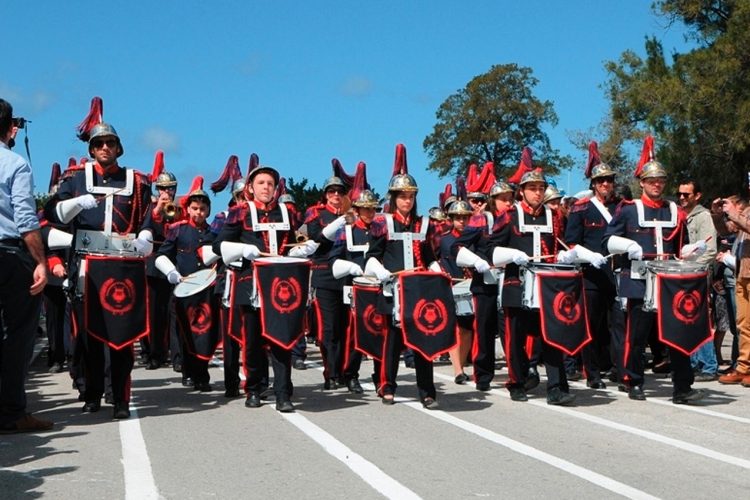
The manners, the customs and the creative speech of Lefkaditians, in different forms, the wishes and curses, the fairy tales and puzzles, the satirical songs and the humorous narratives, are composing the treasures of a rich and great tradition preserved alive until our days.
Many customs were created from the church calendar and the cycle of life – Christmas, Easter, Carnival and Lent. The most interesting are:
CHRISTMAS: The Christmas Eve, women are baking Christopsoma (a kind of bread) or Christokouloura (a kind of bread roll) and the cross (a kind of bread).
They are making crosses for the boys and vlaches or baloubes, for the girls.
The night of the Christmas Eve, are cutting the cross, gathered home, around the Christmas dinner, where they put in the middle a bottle of wine.
The cross is cut in 4 pieces and placed on the top of the bottle. By extending their right hand, they hold and cut the cross, wishing for the future.
NEW YEAR: The new Year’s Eve, Lefkaditians bring to their homes, nerokremida (wateronions) – the katsounes – for a good luck charm. On the New Year welcome the new year with the custom of Diana, in which the Philarmonic of Lefkada, leads. Diana means Eothinos – hymn, song or eulogy. The new year’s eve, before the dawn, the Philarmonic – with an escort of old and young people, full of shouts and songs – walk to the streets of the town and play festive songs and Eothinos, making stops outside the houses wishing for the new year. Diana, was probably a remaining of the Venetian and English domination days.
EPIPHANY: The day of Epiphany, when the Bishop throws the cross, the crowd at the ceremony sinks for 3 times, a bunch of oranges bounded with a rope.
Then it hangs to the icons, while they throw the same time, oranges of the previous year which are perfectly preserved.
EASTER: The Easter Saturday, around 9 in the morning, women hang from the window and “throw the piece” on the street. They throw a ceramic pot or a plate, a lagini, a boti, a tile or something glassy – in general, a fragile pot which can be smashed into small pieces. The pieces of the pot must be left in the street. The piece – the tradition says – is thrown in order to “break” the grief, the silence and the sorrow of the Easter Week.
Then, when the bell tolls, the Philarmonic walks down the street, playing marches.
In this way, the sound of music is combined with the non musical sound of the pots when these are smashed.
